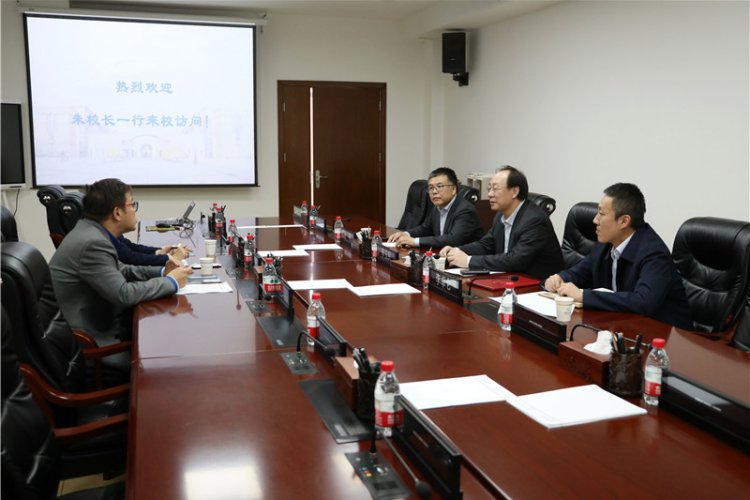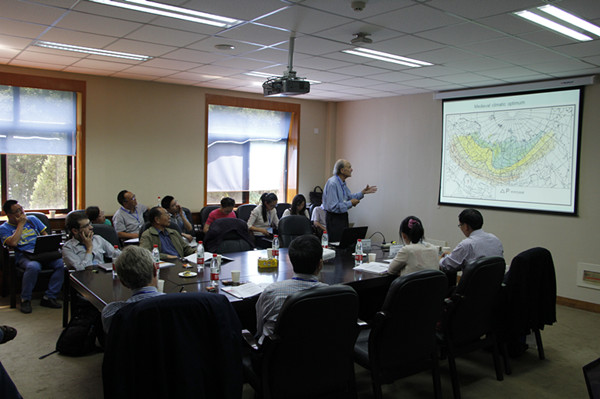
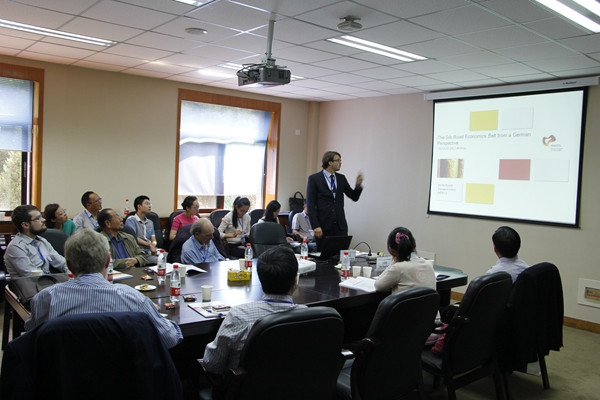
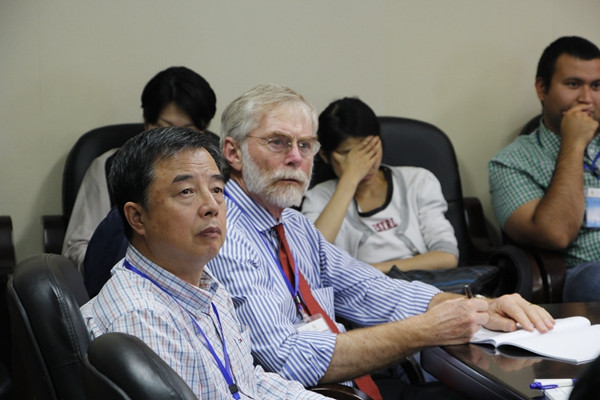
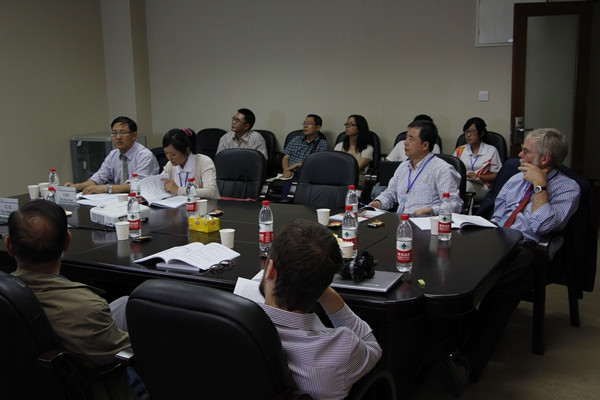
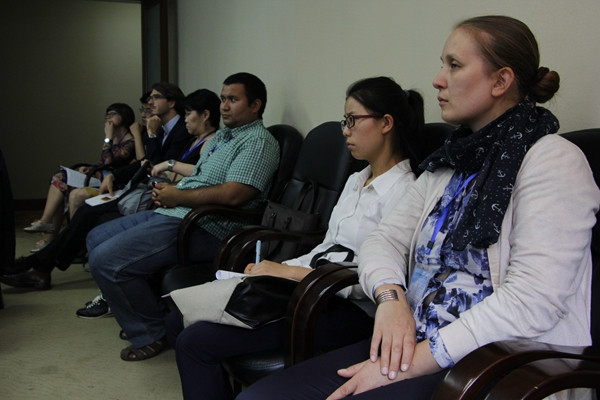
The "one belt one road" cultural roundtable conference jointly hosted by CSCLF and Lanzhou University was initiated in Lanzhou On Aug. 24th, 2014. More than 100 experts and scholars from 21 countries discussed on how to play the role of universities and civil organizations for promoting the communication and cooperation along the silk road and for peaceful development, mutual learning, cooperation and win-win strategy.
“Regional cooperation” roundtable was held at room 203 in Yifu science Hall on the afternoon of Aug. 24. The related scholars from Russia, Turkmenistan, China, Australia, India attended the meeting. The whole meeting is divided into two sections, respectively hosted by Yang Taibao, vice dean of School of Earth and Environmental Science, Lanzhou University, and Andrey Velichko, the outstanding scientist in Russia.
In the meeting, the experts did a heated discussion in the Eurasian economic cooperation, ecological environment variation and international ecological cooperation, transportation infrastructure construction and Eurasian transportation construction, as well as the regional collaboration and integration along the Silk Road economic belt, which offered some constructive suggestions for the development of the Silk Road economic belt.
Andrey Velichko, outstanding scientist in Russia, Nobel Prize Laureate, Chief of Research Laboratory for the Evolution of Geography, Russian Academy of Sciences, gave his own opinions on past and present(21st Century) warming climate of the North Eurasia by presenting several types of pictures. Moreover, Redzhep Kurbanov, researcher of the Institute of Geography, Russian Academy of Sciences and Ilya Chubarov, researcher of the East Institute, Russian Academy of Science analyzed the future scientific cooperation among Turkmenistan, a part of big Silk Road economic belt, China and Russia. Then, Moritz Rudolf, assistant of Chinese Research Centre from Mercator in German, made participants have a better understanding of the Silk Road from the perspective of German. Prof. Yang said that German scholars had similar ideas with Chinese scholars and they could strengthen communication.
Dr. Yang Lijuan, instructor of the School of Economics, LZU, gave a report on Trade Facilitation and Ecology-oriented Development along the Silk Road. She mentioned that Silk Road rising from trade in ancient is an international model achieved in the oasis. The development of the Silk Road economic belt needs flourishing trade and facilitating trade to bring the wellbeing and happiness for the countries along the road and the world, on the basis of inheriting and innovating civilization. In addition, the Silk Road is a road for dialogues among different civilizations and represents the harmonious development between people and nature. The development of standardized system can promote both the trade flourishing and sustainable development.
During the second period of the meeting starting at 4:00 pm, prof. David Kemp from Charles Sturt University gave a speech on Livestock Production and Environmental Improvement and Economic Backbone along the Silk Road. Then, prof. Yang Taibao explained fast changing of ecological environment in central Asia and ecological and economic cooperation of the Silk Road regional countries. He pointed out that in the next 10 to 20 years, the climate of the middle part of Asia will become drier and warmer, causing some serious threat to environment. He presented several comparative pictures of glacier to emphasize the ecological environment changes and problems in Altai Mountain located in China, Kazakhstan, Russia and Mongolia. As the international climate change quickly, he recommended to strengthen research and construction cooperation regarding to ecological problems along the road.
Dr. Eklabya Sharma, deputy director of the International Centre for Integrated Mountain Development(ICIMOD), delivered a speech on climate change and its influence on the Silk Road. In his opinion, the tendency and influence of climate change is critical problem. Moreover, prof. Li Xiangkai, prof. An Chengmou from LZU and Li Zhigang, from Xi’an Jiaotong University expressed their ideas on exploration and allocation of biomass energy in Silk Road economic belt regions, ecological urban-rural development in Gansu Corridor of the new Silk Road economic belt and human settlement and culture development in Gansu Corridor respectively. Prof. Li pointed that biomass energy can effectively relieve energy crisis and environmental pollution, and LZU has promoted the international communication on the biomass energy research for a long time.
At the symposia, prof. Yang concludes that it was significant that scholars from different countries and fields could gather together here. He hoped that scholars could strengthen cooperation and did contribution to the Silk Road economic belt.




